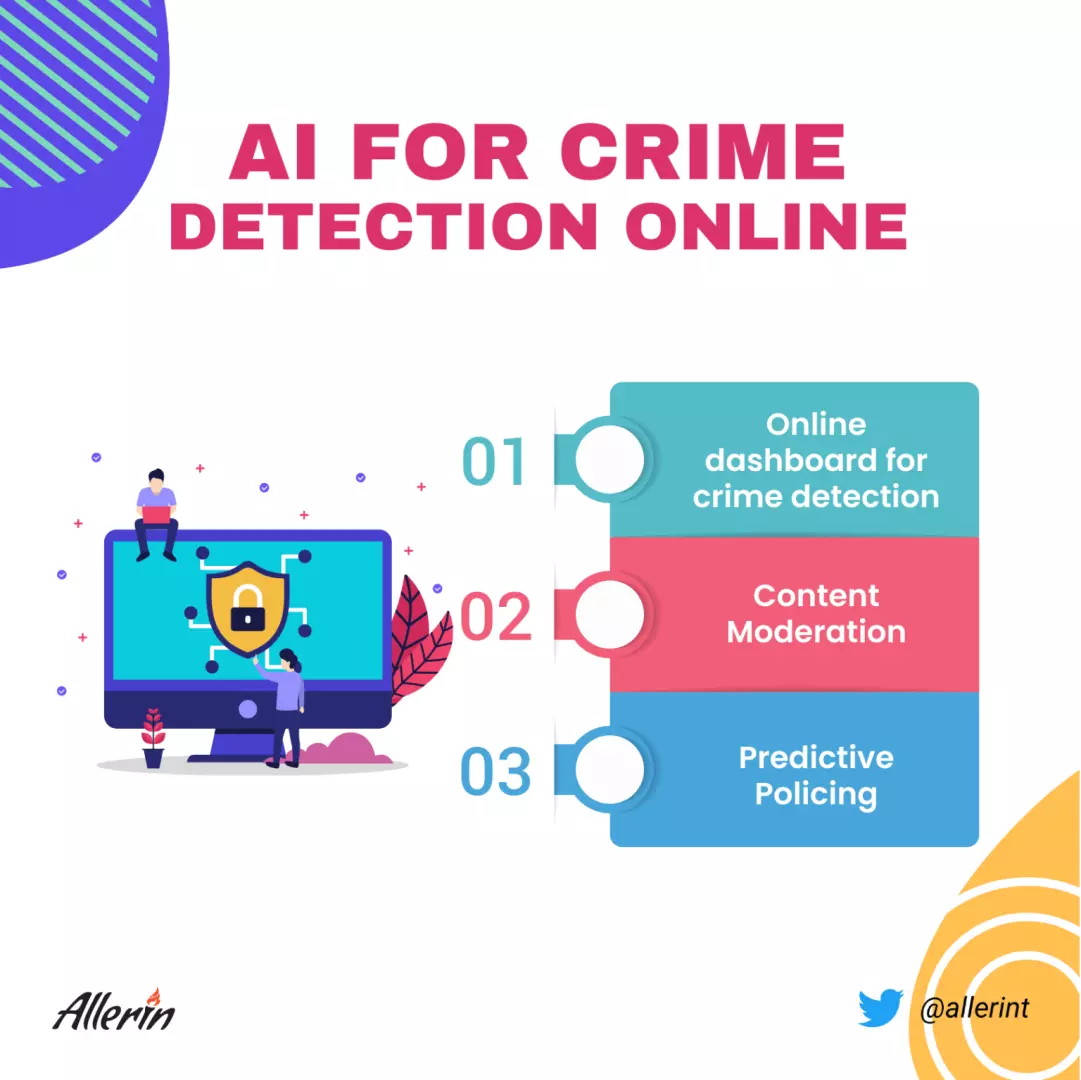Comments
- No comments found

Social media and online platforms are vast spaces that are difficult to police.
AI in smart cities can be employed for predictive policing to prevent crime before it even happens.
The idea of artificial intelligence in machines has been a subject of science fiction films. Fortunately, we live in an age where AI is a reality and not fiction. AI is heavily used by companies involved in big data and analytics for better process improvement. Another important application AI has revolutionized is law enforcement. Not only does it help in the detection of abnormalities or facial recognition, but it also plays a pivotal role in nabbing online fraud and slander. Enforcement agencies today can not only prevent crime but also catch any malefactor.
Law enforcement agencies have started taking the help of AI technology to improve the efficiency of their workforce. Artificial intelligence has turned out to be an indispensable part of law enforcement strategy. AI in smart cities has helped law enforcement officials to keep surveillance and quickly track any IDs propagating hate or defamatory remarks online. There are three elements to this innovation:

Law enforcement agencies around the world have a dedicated AI dashboard that helps in detecting and monitoring activity on the internet. For example, a smart algorithm is set to detect any Islamophobic or anti-semitic remarks or attacks against LGBT or disability groups. With the help of smart AI, solutions agencies can now analyze voices and estimate the age of offenders online. The individual’s voice and other notes are stored in the database, allowing enforcement agencies to nab repeated offenders easily. The webcams on computers and laptops are also used as means to scan the facial IDs of online slanderers. These IDs are matched with official records present on the database, enabling officials to swiftly arrest and punish the offenders.
The rise of hate and fraud in the online community has propelled major online platforms to start content moderation. Any suspicious activity on these platforms is moderated and is reported to authorities. Major players like Facebook, Microsoft, Twitter and YouTube participate in a Global Internet Forum to counter-terrorism and defamation. Through their medium, they share a database of records extracted from violent videos or posts shared on their respective platforms. Currently, the database has a record of more than 200,000 hashes of videos which allow them to block the re-posting of such videos.
AI is helping law enforcement agencies in identifying and sorting a large amount of data online from different tweets or posts. Through this algorithm, officials can detect hate speech and alert organizations of potential threats or issues. During Brexit, the UK dashboard flagged between 500,000 to 800,000 tweets per day, out of which a small portion was classified as hateful. These users were tagged with city locations and a map was created using AI in smart cities to prevent online hate from creating any danger in the real world.
The social media world is evolving year in and out and so are the online fraudsters and slanderers. To catch up with these offenders, the AI algorithms used by law enforcement agencies have to be constantly updated using the latest AI in smart cities. The task of nabbing online criminals, which was not possible in the past, is made possible today with the smart modeling of AI tools.
Naveen is the Founder and CEO of Allerin, a software solutions provider that delivers innovative and agile solutions that enable to automate, inspire and impress. He is a seasoned professional with more than 20 years of experience, with extensive experience in customizing open source products for cost optimizations of large scale IT deployment. He is currently working on Internet of Things solutions with Big Data Analytics. Naveen completed his programming qualifications in various Indian institutes.
Leave your comments
Post comment as a guest